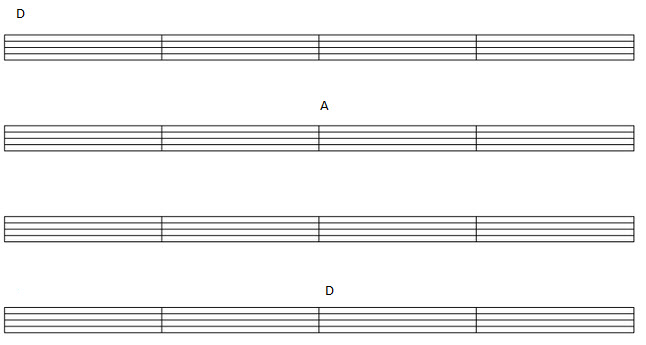https://vimeo.com/215996801
Facts:
The song is in the key of D
It is performed at about 125 beats per minute
You can get chords and lyrics for the entire song here: Margaritaville
Musical Intro
If you’re just used to strumming chords, you might frown upon having to play this brisk opening, but it’s an important part of the song in that it helps set the tone and it also doubles as the ending.
We’ll play a series of double-stops.
Use your 1st finger for the notes on the high E string.
Use your 3rd finger for the notes on the 7th and 5th frets of the B string.
Use your 2nd finger for all other notes on the B string
Once you play through it a few times you’ll begin to recognize the patterns. At that point, the reasoning behind the fingerings will be obvious and come to you second nature. Pick it with all downstrokes.

Strumming Pattern
Try accenting the first and third beats while playing eighth notes in a simple down-and-up stroke on the second and fourth beats.

Start slowly and count along. You can stop counting along once you start getting the hang of it. Practice the strumming over a single chord. Once you can play the strumming pattern as if it’s second nature, you can start following the chord progression.
Chord Progression
Verse
Here’s the basic chord progression for Margaritaville. The verse begins on the D chord. You’ll stay there for six measures and then eight measures of the A chord before heading back to the D chord for two more measures.
